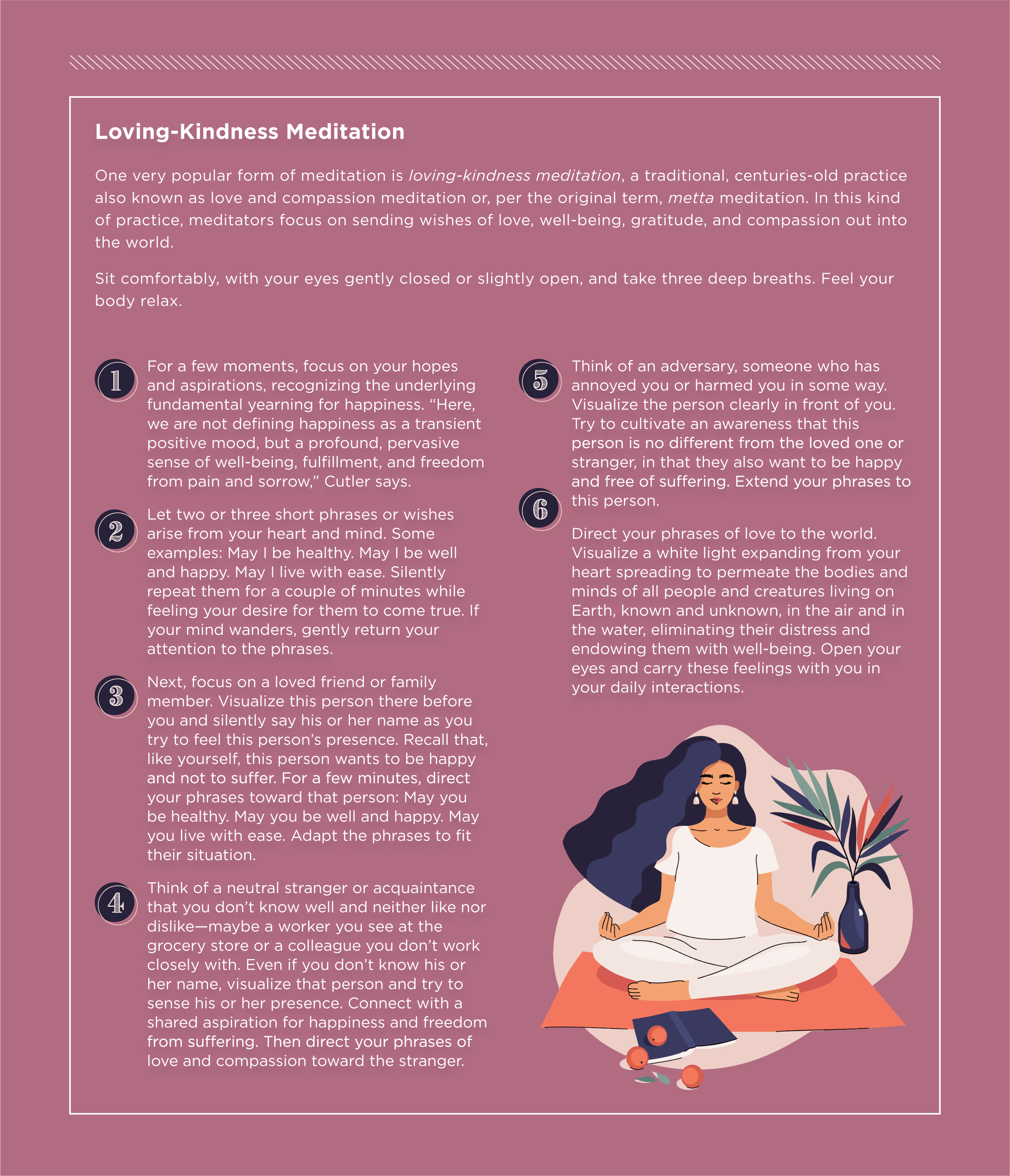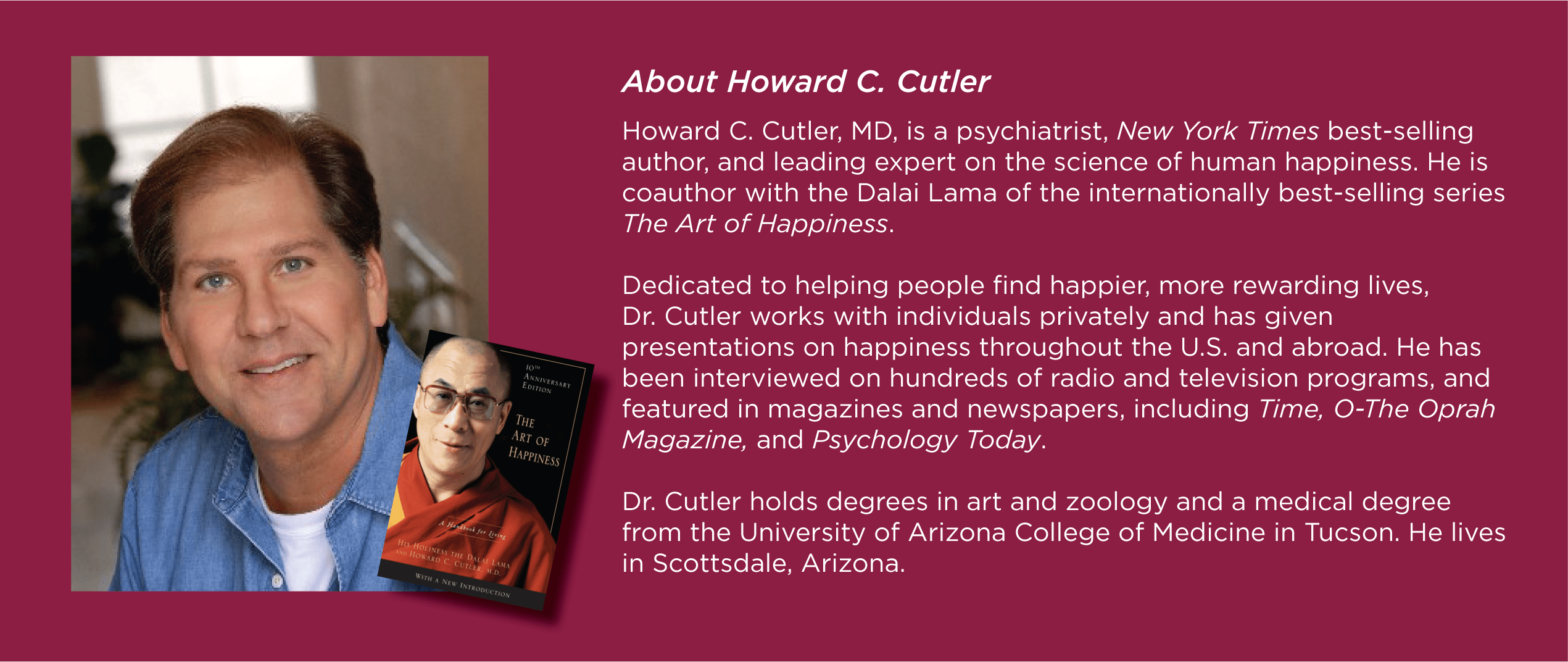Why Giving Love Beats Receiving It
“We need love as we need water,” the poet Maya Angelou wrote. From the time we’re babies, through our teen romances, then as adults, we naturally look to our partners, children, friends, and family members to make us the object of loving attention. Some are lucky in love, while others continue to seek it, but the need to be loved and appreciated is widely accepted as being essential to happiness.
Psychologically speaking, though, there’s a much shorter, more direct path to happiness—and it’s a surprisingly accessible one: giving love. Though we may not pay as much attention to this parallel emotional need, research from the field of positive psychology tells us that humans indeed have a deep, hardwired need to be the givers of love, tenderness, support, understanding, and attention.
This is according to New York Times best-selling author Howard Cutler, M.D., an expert on the science of human happiness who co-wrote with the Dalai Lama the classic book, The Art of Happiness: A Handbook for Living. Drawing on 40 years of conversations with the spiritual leader of Tibetan Buddhism, Cutler is a psychiatrist who takes a secular approach to Buddhist practices.
What Is Love, Anyway?
Love isn’t a single emotion, Cutler says. Instead, it’s a family of emotions and mental states that includes compassion, caring, loving-kindness, mercy, and more. All love is positive, but there are nuances. Some types can be seen as conditional: I’ll love that person as long as they love me back.
For example, a husband may have tremendous love for his wife and harbor only good wishes for her. But say the wife later cheats, and the marriage ends in divorce. All the warmth and compassion he had for her is gone. Conditional love isn’t the most reliable or stable since it contains an implicit desire for someone to fill a certain role for you.
Compassionate love is a bit more selfless. A combination of empathy, kindness, and care, with no expectation of anything in return. It’s the feeling you have for that dog you never met on the internet, or a war-torn country.
A central feature in many religious traditions, compassionate love is rooted in feelings and behaviors that are focused on caring, with an orientation toward helping others.
Giving this kind of love is good for your overall health and well-being. Studies from Ivy League universities to prestigious medical centers report that love is not only key to a happy and satisfied life, it’s even good for our heart—literally and figuratively. These types of relationships can reduce our stress and protect us from certain diseases.
Give Love to Get Love
The road to happiness through giving love needn’t be convoluted.
When you choose to show someone compassionate love—that love comes back to you in the form of trust, respect, loyalty, and more. It can be a small gesture to make your partner or friend feel appreciated, practicing loving-kindness mediation, or just taking time out of your schedule to show up for someone on an occasion big or small.
Giving love is not about grand, showy gestures. It doesn’t take a lot of time, effort, or money to offer another person compassionate love and affection. However, if you want to live a life that is surrounded by love, you have to invest love in others.
Cultivate Compassion
Luckily, there are a host of ways to give love. Cutler offers techniques and exercises in his “Art of Happiness” training courses, executive coaching sessions, and corporate workshops, Cutler teaches simple activities and exercises that are secular in nature but drawn from Buddhist principles.
Take a few minutes to try some of the exercises. You may soon feel the effects for yourself.

15 Circles Exercise
This exercise cultivates compassion and forgiveness. Think of someone you know well and have some kind of grudge against, maybe a family member or former romantic partner. Draw a circle on a sheet of paper and write a few words in it describing your grudge.
Next, draw 15 more circles on the same paper. Fill each one with a word or phrase about something you could be grateful to that person for. Although you may not immediately feel grateful, use your creativity to think of some benefits to you that arose out of the situation. You can try asking yourself a few questions:
- Did I learn something from this person that I wouldn’t have otherwise?
- Did I meet anyone through the experience who became part of my life?
- Did this person help open any doors in my life?
- Would I have missed out on an opportunity if not for this person?
Fill as many circles as you can, even if you can’t fill them all. The exercise is not meant to excuse or minimize what you’re angry about. The purpose is to look at the person’s entire effect on your life, not just the negative, “and in the process, diminish the grudge as your perspective widens to authentically include this gratitude,” Cutler says. You may not end up loving the object of your grudge, but the gratitude produced will open up your heart.
A Simple Act of Gratitude
When was the last time you wrote a letter to your partner, friend, or family member? This simple act of gratitude can help reconnect you to a loved one. Moreover, practicing gratitude is one of the easiest, most effective ways to increase overall happiness, Cutler says.
Think of someone that you feel gratitude toward but have never properly thanked. Write a detailed letter to the person, explaining what they did that you appreciated and how specifically it made you feel. The next step is to make an appointment to see that person and read the letter aloud. This may feel awkward for some, but those who push themselves to do it will find it very powerful.
“This exercise often elicits intense positive experiences, which some people may find transformative—and the effects have been shown to last a long time,” Cutler says. Even writing the letter without sharing it can be a positive experience.
Remember to start slowly. You may find that what you get back can be very fulfilling, and even that the supply of love you have is endless. The truth is, the more love you give, the more love is given to you and that you have to give to others.
